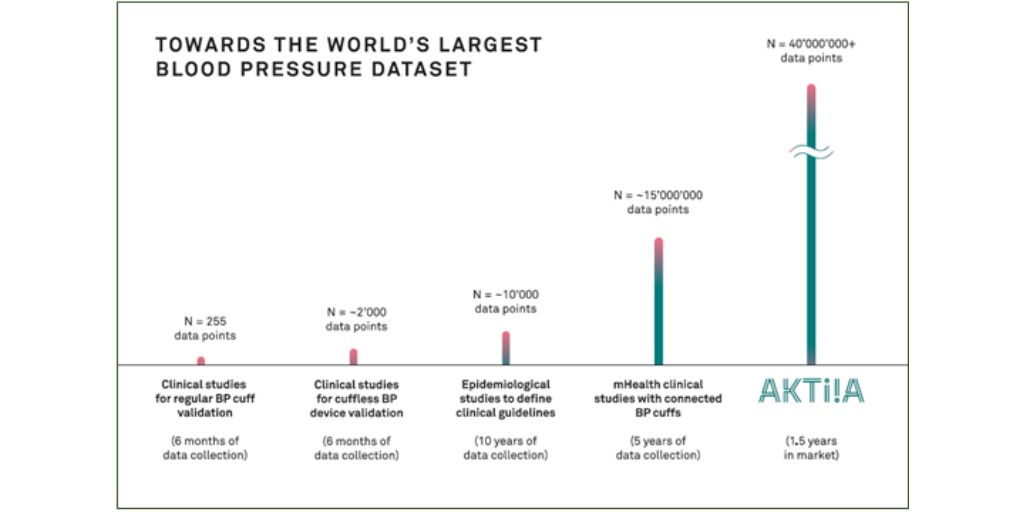 Aktiia hosted a breakout symposium at the 31st European Meeting on Hypertension and Cardiovascular Protection in Athens to share research, data and unite leading experts in hypertension in the mission to improve blood pressure control for 100 million people over the next 10 years.
Aktiia hosted a breakout symposium at the 31st European Meeting on Hypertension and Cardiovascular Protection in Athens to share research, data and unite leading experts in hypertension in the mission to improve blood pressure control for 100 million people over the next 10 years.
Aktiia’s wrist-based continual optical BP monitor has enabled collection of over 40 million data points, establishing the largest dataset of BP readings in the world and demonstrating the huge potential for cuffless devices to unlock new insights. Based on 18 years of research and leveraging partnerships across academic and clinical organizations, Aktiia has achieved the milestone of developing the first comprehensive map of an individual’s blood pressure (BP) pattern.
Even with the most comprehensive BP database in the world, treatment and management of hypertension remains a persistent clinical challenge. Therefore, in collaboration with world-renowned medical institutions, hypertension experts, clinicians, and industry, Aktiia champions a new model of care in hypertension, one that shifts the paradigm from reactive to proactive, from one-size-fits-all to personalized, from provider-centric to patient-centered, from paternalistic to patient empowered, and volume-based to value-based.
Aktiia has assembled an impressive panel of experts to share data, insight and inspiration for the future of hypertension including:
· Chairman: Professor George S. Stergiou MD, FRCP, Chairman, Hypertension Center STRIDE-7, School of Medicine, Athens University
· Dr. Neil Poulter, Chair of Preventive Cardiovascular Medicine and Director, Imperial Clinical Trials Unit, Imperial College London
o Discusses the ability of cuffless devices like Aktiia to deliver exponentially more BP readings than a traditional home cuff, facilitating far greater understanding of BP in an individual patient.
· Professor Alta Schutte, UNSW Sydney, The George Institute for Global Health
o Challenges the status quo of BP as a static parameter with the concept of time in target range and its impact on the long-term effects of hypertension on the organs and body.
· Professor Grégoire Wuerzner, Service of Nephrology and Hypertension, Lausanne University Hospital (CHUV)
o Addresses the challenges of monitoring and managing large patient populations within the constraints of the traditional clinical model of in-person care.
· Dr. Jay Shah, Medical Director, Thoracic Aortic Disease Program, Mayo Clinic Arizona
o Concludes that technology must be paired with a specifically-designed human workflow in order to impact the millions of individuals living with hypertension and inspires partnerships across academia, industry, payers, and governments to redefine the care model.
Additional research, also being presented at the conference builds on the growing body of evidence around accuracy of Aktiia’s wearable device, cementing its position as a frontrunner in cuffless monitoring and a credible candidate for BP monitoring at scale.








